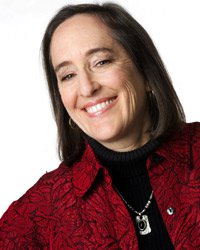Ask Ellen: Knowing the Drill
A mentor in the same subject area is a boon for a new secondary school teacher.
Your content has been saved!
Go to My Saved Content.Dear Ellen,
I am very excited to have recently started my first teaching position. I work in a small community, teaching high school biology and chemistry. My principal assigned me an English teacher as my mentor for the year.
Though my mentor has helped me navigate through the school’s procedures and figure out how to get the materials I need for my class, I really need help with teaching. Unfortunately, my mentor isn’t able to assist me with questions about teaching science. Setting up and managing labs for two different classes is also a challenge. There never seems to be enough time to get everything done -- and my limited chemistry background is frustrating me. I need some help soon! Any ideas?
Samantha Cabot
Dear Samantha,
Congratulations on your first teaching position! Though I can imagine how excited you must be to have your own classroom, I also hear your need for some focused support in teaching science, particularly chemistry. I believe I have some ideas for you to consider.

First, I am pleased that your principal has provided someone to support your day-to-day school needs. He or she recognizes the importance of offering new teachers support and is probably doing all he or she can at this time. Still, I can appreciate the dilemma you face.
As a secondary school teacher, your needs are unique. You have a focus on a particular academic discipline; therefore, it would make sense to have the support of a mentor who is teaching the same content as you. You need someone who can not only coach you in the logistics of your particular school but also direct you to resources that support your teaching and discuss dilemmas of practice in your content area. A content-specific mentor is a key component for effective induction programs for secondary school teachers. Mentors in the same subject areas help teachers develop deeper knowledge of their specialty. Unfortunately, in your situation and school district, it doesn’t appear that that type of mentor is readily available. This is a common plight in secondary schools, particularly those in small or rural districts.
One option your district may want to consider is eMSS -- e-Mentoring for Student Success. (Full disclosure: The New Teacher Center, where I work, is one of the program's developers.) Note that eMSS can supplement your current mentoring and induction program by providing content-specific support to secondary school math and science teachers that is not typically available through induction programs. The eMSS program leverages an online technology network to extend flexible, personalized, content-specific support to beginning teachers nationwide. The eMSS online environment allows mentors and protégés to be paired based on their specific teaching assignments and grade level. Networking and collaborating with other science teachers is invaluable and helps break down the feelings of isolation new teachers often face.
You may also want to explore the resources available through the National Science Teachers Association, the world’s largest organization committed to promoting excellence and innovation in science teaching and learning. The NSTA has a vast array of science resources for all subject areas, as well as professional-development opportunities. Each state has a chapter or affiliate of NSTA that also may be a source of resources, contacts, and professional development.
Though, ideally, a content-specific mentor would be available in your department or district, at least you have a mentor! Many new teachers are not so fortunate. I encourage you to use your mentor, as there are areas where he or she can be very helpful. I believe you will find that the resources I’ve mentioned will be a great help to you as well.
Good luck with your first year of teaching.